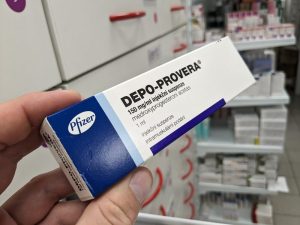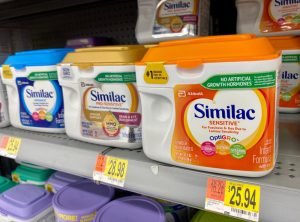This page was written in nine years ago but it has 2024 updates in it. We talk about a lot of things related to Depakote, including the link it could have to autism.
Depakote
Depakote is not exactly a new drug, considering that it was approved by the FDA back in 1978. Since then, it has been approved to treat epileptic seizures and convulsions. The drug soon found itself on the FDA’s radar, prompting them to issue a Black Box warning alerting both patients and doctors of the potential birth defects that the drug may cause.
A few years later, the FDA specifically warned patients about the possibility of neural tube defects, heart defects, and craniofacial birth defects, while also warning about suicidal thoughts and actions associated with Depakote use. Still, the drug was making too much money for Abbott to voluntarily recall.
A 2010 study really put the nail in the coffin for the drug, confirming that the risk of spina bifida increased nearly twelve-fold for children of women who were taking Depakote at the time of pregnancy. And in 2011 the FDA issued another warning, claiming that there was a correlation between Depakote and diminished cognitive abilities. The warning suggested that children born to mothers who were on the drug also have lower IQs.
The drug was a huge cash cow for AbbVie and Abbott Laboratories, generating around $1.5 billion in sales each year. But considering how closely Depakote was linked to birth defects and other conditions, it is likely that the verdict, in this case, will not be AbbVie’s last for the drug. Millions of people were prescribed Depakote. Unfortunately, the damage has already been done.
The Problem with Depakote
Depakote is a known human teratogen. Plaintiffs’ lawyers allege that it is associated with a number of congenital malformations and cognitive deficits. Possible harmful effects include heart defects, hydrocephalus, craniofacial defects, spinal Bifida, microcephaly, heart defects, limb, and digital defects, urogenital defects, cleft lip and palate, decreased IQ, mental retardation, and developmental delay.
When do these injuries happen? Early in the pregnancy. These malformations generally occur in the first nine weeks of gestation. Depakote specifically affects cells and neurons, including those which develop the brain, face, and limbs. The thumbs are completely formed by sixteen weeks, but the absolute dysmorphia occurs in the first nine weeks.
After years on the market, the FDA required Abbott to include a “Boxed Warning” alerting doctors and patients – most notably, mothers and women of childbearing age who might become pregnant – of the risk of birth defects as a result of Depakote use. There are also risks on the box now about hepatotoxicity and pancreatitis. These are serious and potentially fatal conditions.
Depakote lawsuits that involve birth defects such as spina bifida, craniofacial defects, cardiovascular malformations, and similar malformations in young children whose moms were taking Depakote when they were pregnant.
A Verdict
A Missouri jury awarded $15,ooo,ooo to the family of a girl who was born with spina bifida, finding that the drug Depakote led to her condition. Specifically, the suit alleged that AbbVie, who also manufactures drugs like AndroGel, failed to sufficiently warn pregnant mothers who were on the drug about the risk of birth defects.
This specific lawsuit was a product liability action brought by a 12-year-old girl and her family after she experienced health problems throughout her entire life. They alleged that AbbVie failed to adequately warn pregnant women about the correlation between Depakote and birth defects. The $15,000,000 verdict is comprised of compensatory damages for the girl’s medical care (which will be required throughout her entire life), along with pain and suffering, and other costs. There is actually a possibility that AbbVie could be responsible for paying millions more in punitive damages in the second phase of the trial that will determine whether AbbVie recklessly endangered the lives of unborn children.
Continue reading









